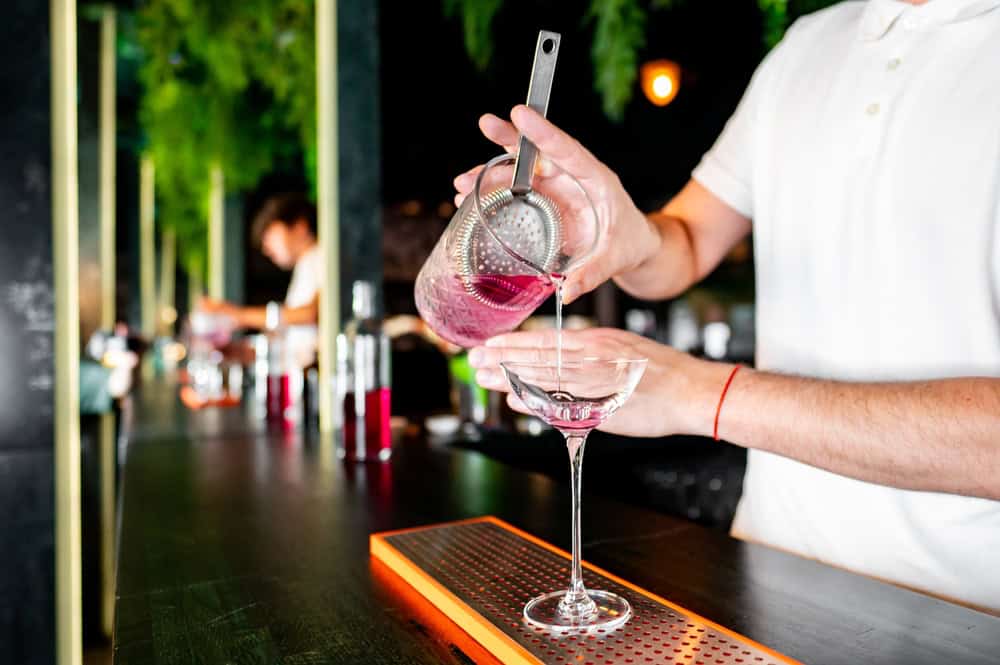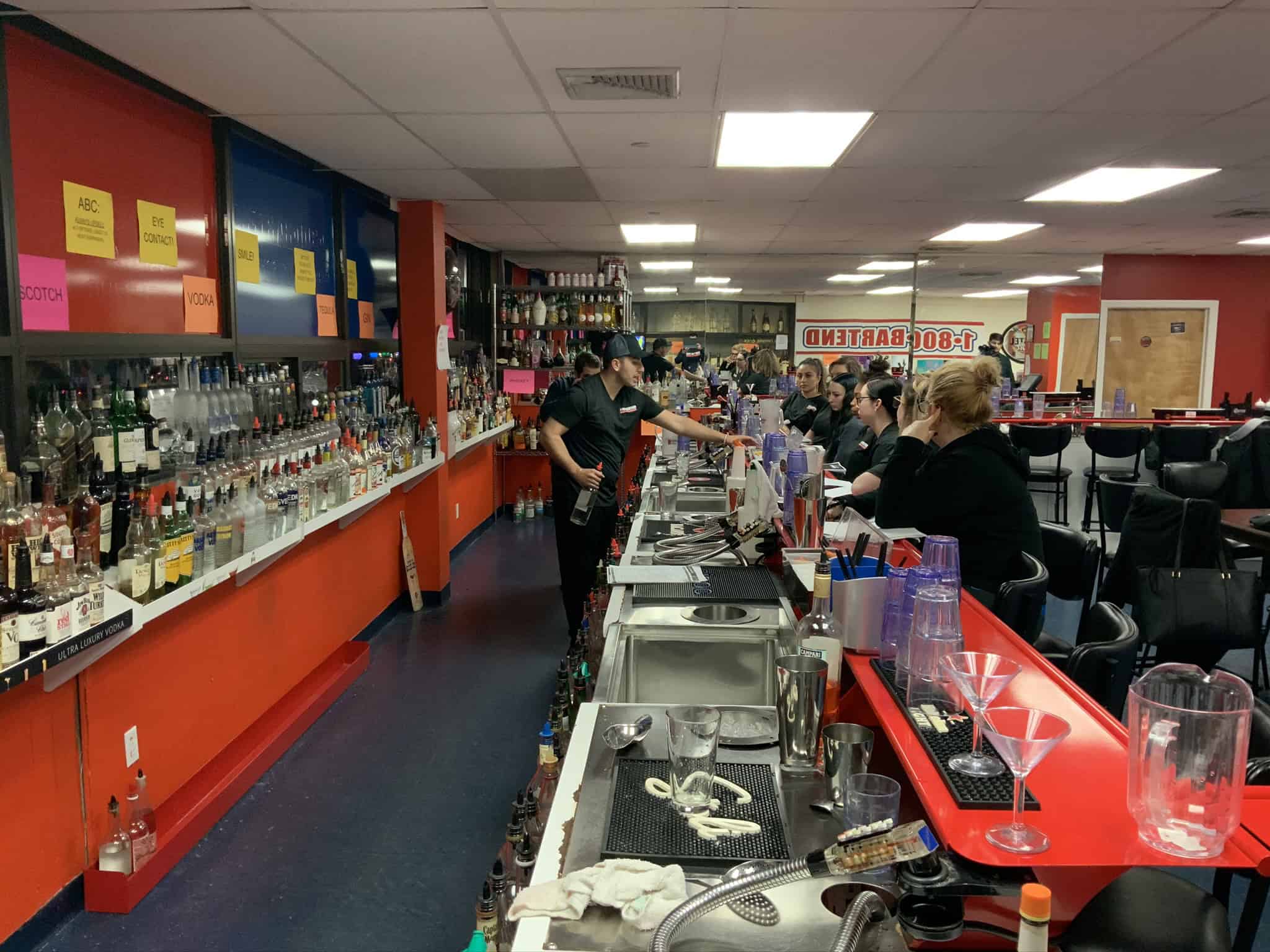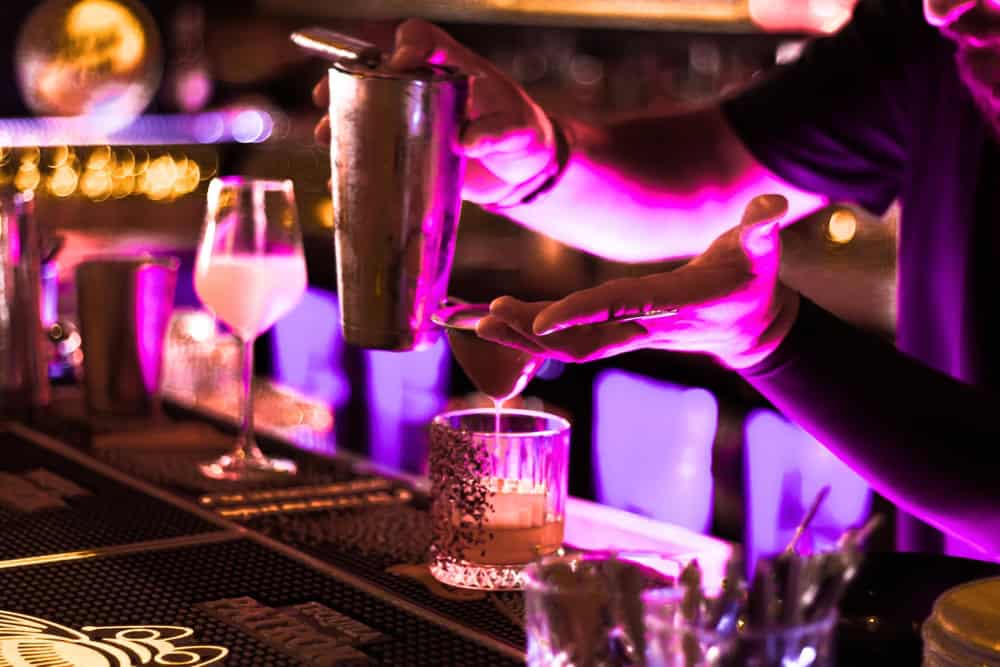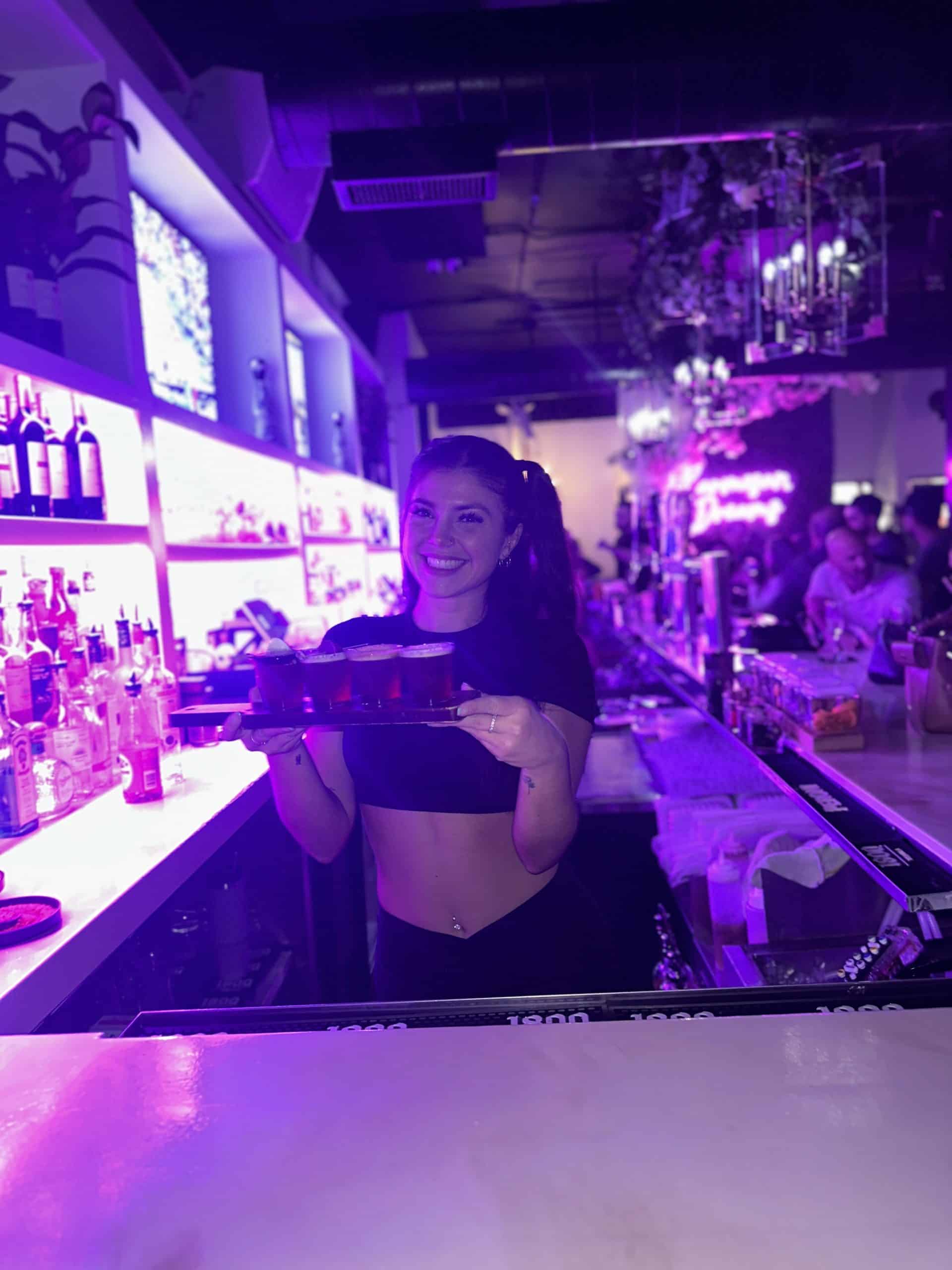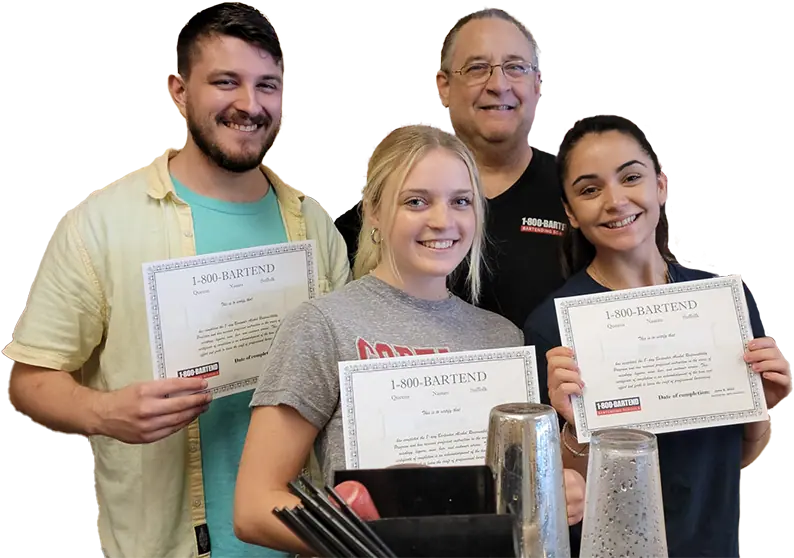Summary:
Understanding Spirits: The Foundation of Mixology
Spirit knowledge separates amateur bartenders from professionals who command higher wages and work at premium venues. Understanding production methods, aging processes, and flavor profiles allows you to make intelligent substitutions when specific brands are unavailable and create original cocktails that showcase each spirit’s unique characteristics. Bourbon differs from rye whiskey in mash bill composition, creating distinct flavor profiles that affect cocktail balance. Tequila production varies between lowland and highland agaves, producing earthy versus floral notes that change how drinks taste. Gin styles range from London Dry to Navy Strength, each requiring different proportions in classic recipes. 1-800 Bartend’s training covers distillation processes, regional differences, and quality indicators that help you stock bars intelligently and educate customers confidently. You’ll learn to identify off-flavors, understand proof variations, and explain aging effects that justify premium pricing to skeptical customers.
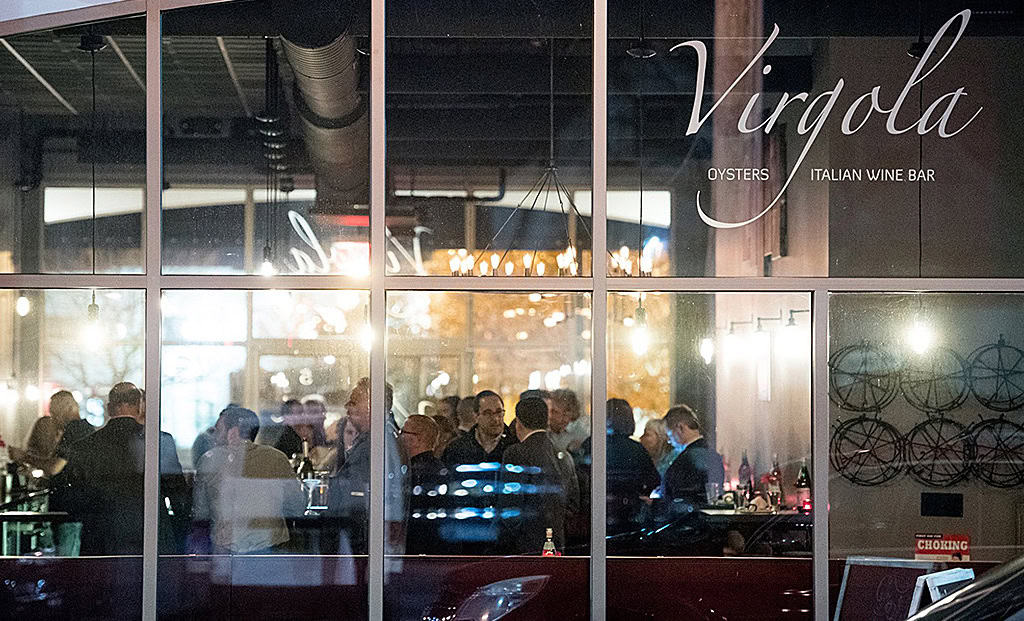
The Art of Wine Selection
Wine knowledge becomes increasingly important as Suffolk County’s dining scene grows more sophisticated and local wineries gain recognition. Understanding grape varieties, terroir effects, and vintage variations helps you recommend wines that complement food and satisfy diverse palates. You’ll need to explain the difference between Burgundy and Bordeaux, suggest food pairings for different wine styles, and properly serve wines at correct temperatures. 1-800 Bartend teaches wine service techniques including proper opening, decanting, and glassware selection that affects customer perception and satisfaction.
Navigating the World of Beer
Beer knowledge has become essential as craft brewing explodes and customers demand variety beyond standard lagers. Understanding brewing processes, hop varieties, and malt characteristics helps you describe flavors accurately and suggest beers that match customer preferences. IPA sub-styles like New England, West Coast, and Session each offer different hop profiles and alcohol content. Proper pouring techniques, glassware selection, and serving temperatures affect beer quality and customer satisfaction. You’ll learn to maintain draft systems, identify off-flavors, and rotate inventory to maintain freshness.
The Importance of Bartender Certification
Bartender certification validates your beverage knowledge to employers and customers, directly affecting your earning potential and job opportunities. 1-800 Bartend’s certification programs test your understanding of spirit categories, wine service protocols, and beer styles through written exams and practical demonstrations. Certified bartenders typically earn 20-30% more than uncertified counterparts because they can handle complex customer questions, make intelligent product recommendations, and train newer staff members. The certification process includes blind tastings, product identification challenges, and customer service scenarios that simulate real bar conditions. You’ll study alcohol laws, liability issues, and responsible service practices that protect both customers and employers. This knowledge becomes particularly valuable when working private events where you may be the only bartender present and must handle all beverage-related decisions independently.
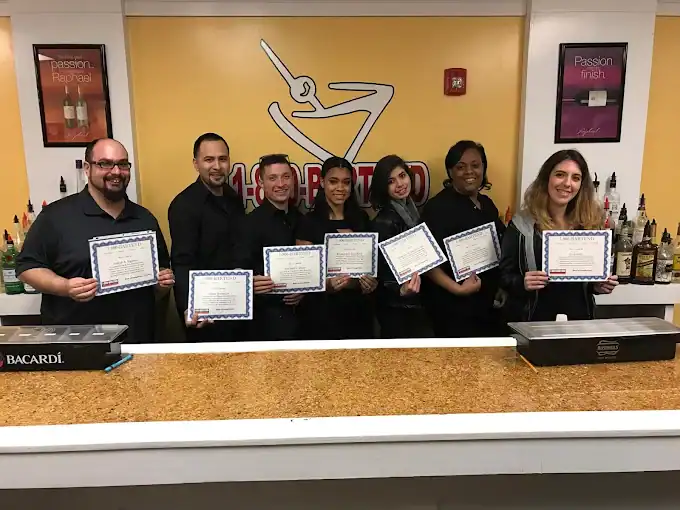
The Role of a Private Bartender
Private bartending requires deeper beverage knowledge because you often work without backup support or extensive inventory. You must understand substitutions, create custom cocktails from limited ingredients, and educate clients about their beverage choices. Wedding receptions may require wine knowledge for dinner pairings, while corporate events might focus on craft beer selections. Your ability to discuss product origins, production methods, and flavor profiles justifies premium pricing and generates repeat business.
Continuous Learning and Networking
Beverage trends change rapidly, requiring ongoing education to maintain relevance in Suffolk County’s competitive market. New spirit categories, wine regions, and beer styles constantly emerge, affecting customer expectations and menu development. 1-800 Bartend provides continuing education opportunities, including advanced tastings, industry seminars, and networking events with distributors and producers. Building relationships with sales representatives keeps you informed about new products and pricing changes that affect bar operations.
Build Your Beverage Foundation in Suffolk County, NY
Professional bartending success requires deep understanding of spirits, wine, and beer that extends far beyond basic recipe knowledge. Your ability to educate customers, make intelligent recommendations, and handle complex beverage questions directly affects your earning potential and career advancement. 1-800 Bartend’s training programs build this foundation through systematic education, hands-on practice, and certification that validates your knowledge to employers. Contact 1-800 Bartend today to start developing the beverage knowledge that transforms good bartenders into indispensable professionals.


